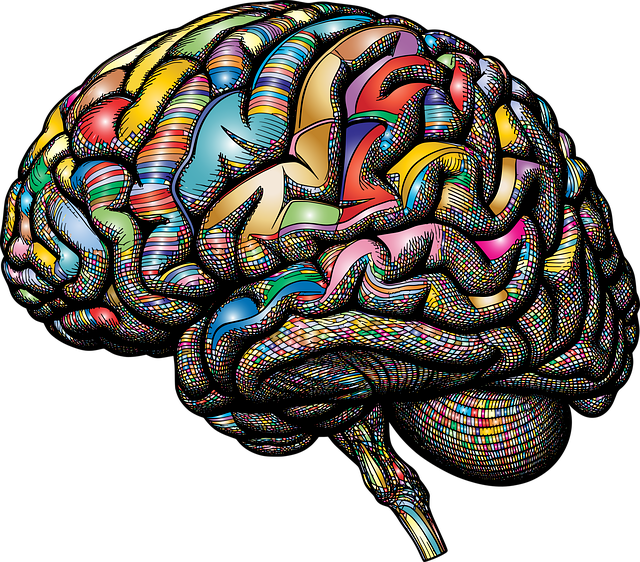Mental wellness self-care routines for children are personalized, using play and creative techniques in therapy to address emotional challenges early. Bariatric evaluations help manage stress, while public awareness campaigns educate parents and caregivers on child mental health. Creative expression through art, music, and movement is powerful for processing emotions, especially for non-verbal kids. Incorporating self-care practices like journaling enhances traditional therapy and fosters a positive relationship with food. Building a routine requires dedication, starting with small goals and adjusting based on personal needs, similar to therapy sessions or bariatric evaluations.
Mental wellness self-care routines are essential for children’s holistic development. This article explores effective strategies to enhance mental well-being, focusing on play therapy, creative expression, and bariatric evaluations. We delve into nutritional strategies for mindful eating, offering insights into promoting healthy habits. Additionally, we provide practical tips for establishing sustainable self-care routines, emphasizing the importance of consistency in therapy for young children. Discover how these approaches can foster resilience and overall mental wellness.
- Understanding Mental Wellness Self-Care for Children
- The Role of Play and Creative Expression in Therapy
- Bariatric Evaluations: Nutritional Strategies for Mindful Eating
- Building a Sustainable Routine: Tips for Consistency
Understanding Mental Wellness Self-Care for Children

Mental wellness self-care routines are not one-size-fits-all, especially for children. Understanding a child’s unique needs is crucial in developing effective strategies. Therapy for young children often focuses on incorporating play and creative techniques to address emotional challenges, fostering healthy coping mechanisms from an early age. Just as physical health requires attention, mental wellness necessitates care, ensuring children have the tools to navigate their emotions and stress.
Bariatric evaluations, while commonly associated with physical weight, can also metaphorically refer to a child’s emotional well-being. Public Awareness Campaigns Development and Stress Management Workshops Organization play significant roles in educating parents, caregivers, and educators about mental health issues in children. Promoting emotional intelligence in young minds helps them recognize and express their feelings, leading to better self-care practices and improved overall wellness.
The Role of Play and Creative Expression in Therapy

Play and creative expression are powerful tools in therapy, especially for young children. Through art, music, movement, and imaginative play, therapists can help kids explore their emotions, communicate experiences, and process traumatic events. This non-verbal form of communication is particularly beneficial for those who struggle with verbalizing their feelings or have experienced complex traumas. For instance, a child experiencing anxiety might find solace in painting their fears as abstract shapes rather than trying to articulate them verbally.
In the context of mental wellness routines, encouraging creative outlets can be a game-changer for individuals of all ages, including those undergoing bariatric evaluations. Engaging in activities that foster self-expression can help prevent burnout and promote self-esteem improvement. A simple mental wellness journaling exercise guidance, such as doodling or writing prompts, can provide an outlet for processing emotions, setting personal goals, and tracking progress over time. This practice not only supports overall mental health but also serves as a valuable tool in therapy sessions, complementing traditional therapeutic techniques and enhancing the healing process.
Bariatric Evaluations: Nutritional Strategies for Mindful Eating

Bariatric evaluations play a crucial role in developing nutritional strategies for mindful eating, particularly for young children. These comprehensive assessments help identify underlying dietary patterns and mental health factors that contribute to unhealthy eating habits. By integrating insights from therapy sessions, parents and caregivers can learn effective self-care practices and conflict resolution techniques within the context of mealtimes.
Focusing on stress management workshops organized by healthcare professionals, families gain valuable tools for navigating challenging situations around food. This holistic approach ensures that nutritional strategies are not just about calories and macros but also about fostering a healthy relationship with food and promoting mental wellness. Incorporating self-care practices into the daily routine can create a soothing atmosphere during meals, making it easier for children to engage in mindful eating habits.
Building a Sustainable Routine: Tips for Consistency

Building a sustainable mental wellness self-care routine is an ongoing process that requires dedication and consistency. It’s like nurturing a garden; you plant seeds, tend to them daily, and watch them grow over time. The same approach applies to your well-being—a routine isn’t something you perfect overnight but rather a journey towards better mental health. Start by setting small, achievable goals and gradually incorporate practices that nurture your mind, body, and soul. Consistency is key; just as regular therapy sessions for young children or bariatric evaluations require commitment, so does cultivating a healthy self-care regimen.
To foster consistency in your routine, consider incorporating activities that enhance positive thinking and emotional intelligence—essential tools for self-awareness exercises. Schedule dedicated time each day for practices like mindfulness meditation, journaling, or even simple deep breathing exercises. These moments of calm can help manage stress and provide a mental break from daily demands. Regularly reviewing and adjusting your routine based on personal needs ensures its longevity and adaptability to life’s changes.
Developing a mental wellness self-care routine is a holistic process that integrates various therapeutic approaches and lifestyle strategies. As highlighted in this article, understanding specific needs like play therapy and mindful eating through bariatric evaluations is key to fostering resilience in children. By combining these methods with consistent routines, parents and caregivers can empower young minds to navigate stress and promote overall well-being. Embracing these practices not only benefits the present but also lays a strong foundation for future mental health management.












